Do Kids Really Need to Be Vaccinated for Covid? Yes. No. Maybe.
At the end of last month, Pfizer announced plans to submit important news to federal regulators. The drugmaker had recruited over 2,000 adolescents aged 12 to 15 for a clinical trial of its Covid-19 vaccine, and the results were promising: Among the young people receiving the vaccine, there were zero reports of Covid-19. Meanwhile, 18 cases of Covid-19 occurred among those who did not receive the vaccine.
“We share the urgency to expand the authorization of our vaccine to use in younger populations,” Pfizer chief executive Albert Bourla said in a press release accompanying the result showing 100 percent efficacy. He added that the company planned to submit its data to the United States Food and Drug administration as a proposed amendment to the Emergency Use Authorization it had already received for the vaccine’s use in adults. The goal, said Bourla, was to begin “to vaccinate this age group before the start of the next school year.”
Pfizer is not alone. Rival drugmakers Moderna and Johnson & Johnson are also testing their vaccines in teenagers, and all three companies have begun early trials in infants as young as six months old. It’s part of a groundswell of pharmaceutical science and public health messaging around what many experts view as the urgent next step in ending the Covid-19 pandemic: vaccinating adolescents and younger children.
Voiced by some leading physicians and researchers, and amplified by a drumbeat of like-minded press coverage, the notion that the Covid-19 pandemic cannot be curbed without vaccinating children has quickly become axiomatic in parts of the public health world. “Children are the next vaccination frontier,” wrote Jeremy Faust, an emergency physician and instructor at Harvard Medical School, and Angela Rasmussen, a virologist and affiliate at the Center for Global Health Science and Security at Georgetown University, in a recent New York Times op-ed. “When it comes time to vaccinate them, the same urgency and large-scale coordination efforts driving adult vaccination must continue if we want to sustainably drive down Covid-19 cases and ultimately end the pandemic.”
But not everyone is convinced that it’s necessary to vaccinate children to reach herd immunity, which occurs when a high enough percentage of a population is immune to a pathogen, either by vaccine or previous infection, to keep viral spread under control. Just what that percentage might be for any given population is still a matter of substantial uncertainty and disagreement. Some experts, for instance, point to examples like Israel and the United Kingdom, where adult vaccination rates are high, and Covid-19 cases among unvaccinated children and adolescents are nonetheless in sharp decline. “It’s simple math,” wrote Monica Gandhi, an infectious disease physician and professor at the University of California, San Francisco, in an email to Undark. “We don’t need to vaccinate those under 11 to get to herd immunity.”
While Gandhi and others say they might support vaccination of young children should the clinical trials prove that vaccination is safe and beneficial, these experts worry that overstating the role children play in spreading Covid-19 can have negative downstream impacts, including delaying school reopenings and overlooking populations at much greater risk from the virus, including elderly individuals in low- and middle-income countries who currently have no access to vaccines. “You need to be careful not to distort people’s perceptions,” said Gandhi.
For their part, Faust and Rasmussen suggest that comparisons across national borders are fraught, and that geographic and cultural differences matter. “It’s really difficult to compare any two countries,” said Faust. He notes, for example, that Israel has a much smaller population and a smaller landmass than the United States, which makes the logistics of widely and uniformly vaccinating the adult population less complicated. And Rasmussen noted that Israel started its vaccination campaign with a strict lockdown, and didn’t begin to open the economy again until early February. “If you get transmission way down,” she said, “then you will see less spread with fewer people immunized.”
And other experts argue that, even if serious illness from Covid-19 is unusual in children, it simply makes sense to vaccinate them anyway — assuming a vaccine is proven safe — in order to avoid rare but tragic outcomes. (According to data from the Centers for Disease Control and Prevention, more than 250 children in the U.S. have died as a result of a Covid-19 infection so far.)
Still, the myriad uncertainties may be partly why the U.K. is taking a wait-and-see approach to vaccinating children. Adam Finn, a pediatrician at the University of Bristol and a member of the U.K.’s Joint Committee on Vaccination and Immunization, said that his country is going to look at all of the data as they become available over the next weeks and months and then make a decision about whether to vaccinate children. “We need to be in a position to immunize children with these vaccines if it proves necessary to do so,” he said. But he added, “we shouldn’t do it unless we need to do it.”
Gandhi says she is particularly excited about the trajectories of Israel and the U.K. The former has conducted the fastest vaccination campaign thus far. Since the start of the rollout in late December, approximately 60 percent of the adult population has received at least one dose of the vaccine, and cases have plummeted. The country of 9 million now reports fewer than 200 Covid cases per day. Along the way, something encouraging started happening, Gandhi says: Covid rates didn’t just decline in vaccinated adults — they also declined in individuals under 20, a largely unvaccinated population. And cases have continued to decline, even after the country opened up broad swaths of the economy in February. “I think they’re approaching herd immunity,” said Gandhi.
Adi Niv-Yagoda, an expert in health policy and medical law at Tel Aviv University, and a member of Israel’s Ministry of Health Covid-19 Expert Advisory Panel, said that the country has been able to provide “significant protection” to high-risk groups, particularly adults over the age of 60. But he stopped short of saying they have reached herd immunity. Children make up a relatively high proportion of Israel’s population, he wrote in an email, and “as long as the group of children under the age of 16 is not vaccinated, it is difficult to talk about the herd effect in its traditional epidemiological conception.” Further, he said, now that the economy is opening up, schools have reopened completely, and the government has lifted its outdoor mask mandate it will be necessary to monitor the situation over time.
One recent study, which has not yet been peer reviewed, does lend some support to the notion that vaccinating adults is having a beneficial effect on unvaccinated children and adolescents. The researchers looked at medical data from children in more than 200 Israeli communities and found that when the vaccination rate among local adults climbed, a decline in positive cases among children followed. This relationship between adult vaccination and a drop in childhood cases “is likely to be vaccine-related” and not related to other public health measures, which can vary across geographical areas, said Fiona Russell, a pediatrician and infectious disease epidemiologist at the University of Melbourne in Australia, who leads large-scale flu vaccine impact studies in the Asia-Pacific region and was not involved in the Israel study.
Leaving young people unvaccinated over the long-term, however, is precisely what experts like Faust and Rasmussen worry about. If the U.S. does not vaccinate children, they suggest, then the virus may well find a foothold to mutate and become even more harmful. Rasmussen told Undark that kids could “become a new reservoir for the virus to circulate, because that’s what happens with viruses when you have a large population of susceptible hosts. A virus doesn’t care about anything, much less its host’s age.”
That’s why Faust says he worries that Americans will be resistant to Covid vaccines in children. Indeed, while a growing share of American adults say they plan to get a Covid-19 vaccine, a survey conducted as part of the Covid States Project, a collaboration of researchers from universities across the U.S., found that just 44 percent of mothers and 64 percent of fathers said they would be likely to vaccinate their children and adolescents. A full 43 percent of mothers under the age of 35 in the study, which has not yet been peer reviewed, said they were either extremely or somewhat unlikely to vaccinate their kids.
Still, the idea that unvaccinated children and adolescents might provide a reservoir for viral mutation is not universally accepted, even among those who otherwise support the idea of vaccinating young people. “It sounds like science fiction to me,” said Vincent Racaniello, a virologist at Columbia University. He believes children need to be immunized to provide herd immunity and to protect their health — but not to prevent variants. “Variants are going to arise, irrespective of whether kids are immunized,” he said.
Variants have grabbed the national headlines lately. Ten days ago on NBC’s Meet the Press, Michael Osterholm, a University of Minnesota epidemiologist and a member of Joe Biden’s coronavirus advisory board during the presidential transition, described the B117 variant, which is thought to have originated in the U.K. and has since entered the U.S., as more transmissible and more harmful than earlier iterations of the coronavirus. “This is almost like having a whole new pandemic descend upon us,” said Osterholm. B117 “infects kids very readily” he said, noting that his home state of Minnesota has hundreds of schools with “B117 activity.”
But Gandhi considers such claims about B117’s effects on kids to be overstated. She pointed to data from the U.S. Centers for Disease Control and Prevention showing that although American kids aged 0 to 17 are the least vaccinated age group, from February to March, increases in case and hospitalization rates were low. And several experts pointed out that the states with the highest reported number of B117 cases don’t always map neatly to the states with the highest rates of Covid cases. In the instances where B117 does overlap with a statewide infection surge, it isn’t clear that the variant actually caused the surge, said Racaniello. Michigan’s latest surge, for example, occurred after the state loosened restrictions on bars and indoor dining. “People started de-masking and going out and getting together,” said Racaniello. “B117 happened to be there, so it came along for the ride.”
Moshe Arditi, a pediatric infectious diseases expert at Cedars-Sinai Medical Center in Los Angeles acknowledged that it’s important to study and monitor the variants, “but not put headlines in The New York Times” every week to scare people. “That,” he said, “I do not understand.”
If adults are vaccinated, said Arditi, then he’s doubtful that harmful variants are going to arise from unvaccinated children. As evidence, he pointed to emerging research suggesting that one reason for kids’ relatively better outcomes is that the cells that line their nose and throat mount a more vigorous immune response that allows them to clear the virus rapidly, giving them a shorter time to transmit it. Arditi notes that he has been treating children with viruses for the last three decades, and that he believes that children need to be immunized for other reasons — to protect their health, for example, and to achieve herd immunity faster. But he doesn’t think kids’ becoming a reservoir for more dangerous variants “is something we need to worry about right now.”
Whether or not that’s true, some experts suggest that vaccinating children is still worthwhile to protect against rare but severe outcomes. In addition to the more than 250 deaths so far, children comprise 1 to 3 percent of total Covid-19 hospitalizations, according to the American Academy of Pediatrics. The CDC has also identified more than 3,000 cases of a severe condition known as multisystem inflammatory syndrome in children (MIS-C) since May 2020.
“It’s rare for children to get very sick, but some do,” said Lainie Friedman Ross, a pediatrician and professor of clinical ethics at the University of Chicago. She says the United States “probably could achieve” herd immunity without vaccinating children, “but why would we want to?” she asked. Peter Hotez, a vaccine scientist and pediatrician at Baylor College of Medicine, agrees. The risk of MIS-C alone is reason to vaccinate, he says, given that kids are vaccinated against the flu, which kills roughly 200 children in a typical year.
Not everyone views the risk-benefit calculus the same way, however. Older adults have the most to gain from being immunized and they are “probably most willing to tolerate the side effects” of the vaccine, said Vinay Prasad, a hematologist-oncologist and professor in the department of epidemiology and biostatistics at the University of California, San Francisco. It’s not yet clear whether young people will experience the same side effects as adults — which can include high fevers and other symptoms — but if they do, Prasad suggests, their families won’t be happy.
“I think parents will have a lot of questions,” he said. “It’s going to be a big dialogue whether or not parents are willing to subject their kids to that.” Prasad has argued elsewhere that an Emergency Use Authorization is not appropriate for children. Under this provision, the FDA can allow products to be used based on lower levels of evidence than traditional approvals in times of emergency. “There’s no question that Covid-19 is an emergency for adults,” he wrote in an opinion piece for Stat. “But it isn’t that for children.”
That’s roughly how Finn views the situation in the U.K. “We don’t have enough information yet to be sure as to whether we need to immunize children,” Finn said, but the bottom line is clear: “Absolutely, clearly, we should not be immunizing children against this disease unless we need to.” Not only is it an expensive and difficult undertaking, he says, “children don’t get sick very often with Covid, and so they don’t stand to benefit directly from the immunization to any great extent.”
Like Israel, the U.K. also started its vaccine rollout in December and has seen a dramatic decline in cases since its peak in January, down to roughly 3,000 a day in a country of 66 million people. The decline has coincided with the vaccine rollout. The country is currently second among the world’s major economies in terms of percentage of the population vaccinated, with those aged 45 and over now eligible and nearly 50 percent having received at least one dose. (The U.S., by comparison, ranks 4th, with just over 35 percent of its adult population vaccinated to date.)
“We’re still in a very vulnerable situation because young adults have not been immunized,” said Finn. That population will also now be more likely to venture out as the country continues to ease lockdown restrictions.
When pressed, Gandhi acknowledged that the U.K. may not provide any clear answers until more data is available on Covid rates in children since the reopening of schools, which commenced for students at all grade levels in England on March 8, and which is happening in phases across the rest of the U.K. This data will be especially useful, she said, because primary school students in the U.K. don’t wear masks, so their experience this spring might give U.S. schools a good idea of what to expect come fall.
If case counts remain low, said Finn, more and more businesses will be permitted to reopen, with a goal of normalizing by May or June. But the precise percentage needed to achieve herd immunity – and how evenly among the population immunity must be spread in order to suppress the virus – remains to be seen, Finn said. Even if 80 percent immunity is achieved, after all, that immunity must be spread more or less evenly across a population. If it’s unevenly distributed – say 100 percent immunity in some areas, but only 60 percent in others — outbreaks would continue to spread across communities.
We’re only beginning to understand all of this, Finn said.
Given the lingering uncertainties, Gandhi suggests that overstating the importance of vaccinating children carries real risks. Sensationalized media coverage — she called it a “fear-based approach” — for example, could further delay the reopening of schools, given that many children are likely to still be unvaccinated by fall. “I think that any articles that say that you have to vaccinate young children to get to the end of our pandemic are, yes, going to keep schools closed,” she said. By one estimate, as of this week, nearly one in ten public school students in the U.S. were still attending a remote-only school.
Several experts voiced additional concerns about the ethics of vaccinating American children before adults in low- and middle-income countries, especially now amidst allegations that the United States is hoarding vaccines. “I think it would be morally wrong to vaccinate children in a nation with plummeting SARS-CoV-2 rates and plummeting hospitalizations and plummeting deaths before vaccinating 80-year-olds in countries that have current outbreaks of SARS-CoV-2,” said Prasad. “You are literally taking a product that could be used to save many lives and giving it to people who are very overwhelmingly unlikely to suffer bad outcomes.”
Hotez of Baylor University found such reasoning dubious. “Even if the U.S. donated all of its vaccines to low- and middle-income countries, it’s a drop in the bucket,” he said, estimating that this population includes 2 billion people. As he sees it, the world was more or less oblivious to the fact that the cutting-edge technologies used to develop and manufacture many of the currently available vaccines are not scalable for low- and middle-income countries. He and his colleagues are using a recombinant protein and yeast approach that has been around for 40 years that can be easily scaled up and produced at low cost.
It might be a moot point: The Trump administration’s contracts with the vaccine manufacturers reportedly include a clause limiting the use of vaccines to the United States, which has broad laws that relieve manufacturers of liabilities. Whether the Biden administration would seek to alter such agreements remains unclear.
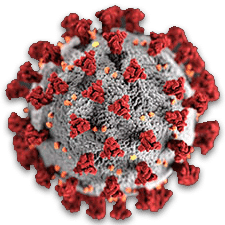 |
For all of Undark’s coverage of the global Covid-19 pandemic, please visit our extensive coronavirus archive. |
For her part, Gandhi remains skeptical of vaccination for youngsters. Children have largely been spared the worst effects of SARS-CoV-2, she noted, and yet they have also been asked to make tremendous sacrifices in the name of community safety – disrupting in-person schooling and forgoing socialization at a time when such activities are developmentally crucial. Adults have an obligation to pay it back, she suggests, by striving for herd immunity on their own, a goal she sees as achievable with a concerted effort. “Every adult,” Gandhi said, “should take the vaccine.”
Finn, meanwhile, says that there are simply too many unknowns to definitively say yes, all children must be vaccinated in order to halt the Covid-19 pandemic, or no, herd immunity can be achieved without vaccinating kids. Under normal circumstances, he said, the U.K. would do a very detailed cost-benefit analysis before deciding how to proceed. But in the midst of a global pandemic, when the U.K. and other wealthy countries have already paid for hundreds of millions of vaccines up front, the calculation is different.
“That doesn’t mean you just use them willy-nilly,” he said. “There’s a limited supply. You have to think about how you are going to use them and who you are going to give them to.”
And no approach, he suggested, carries a guaranteed outcome.
“We may end up immunizing children, but I don’t know when, and I don’t know if we’ll ever do it,” said Finn, one of 16 members of the expert panel charged with guiding the U.K.’s vaccination efforts. “Not because somebody knows and I don’t — but because we haven’t decided.”
UPDATE: An earlier version of this piece misspelled the surname of Monica Gandhi in some instances. The article has also been updated to clarify that while Moshe Arditi, a pediatric infectious diseases expert, does not think that children are in danger of becoming a reservoir for new Covid variants, he does support vaccinating them for other reasons.
Sara Talpos is a senior editor at Undark and a freelance writer whose recent work has been published in Science, Mosaic, and the Kenyon Review’s special issue on science writing.





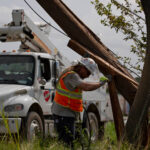
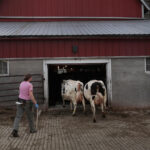



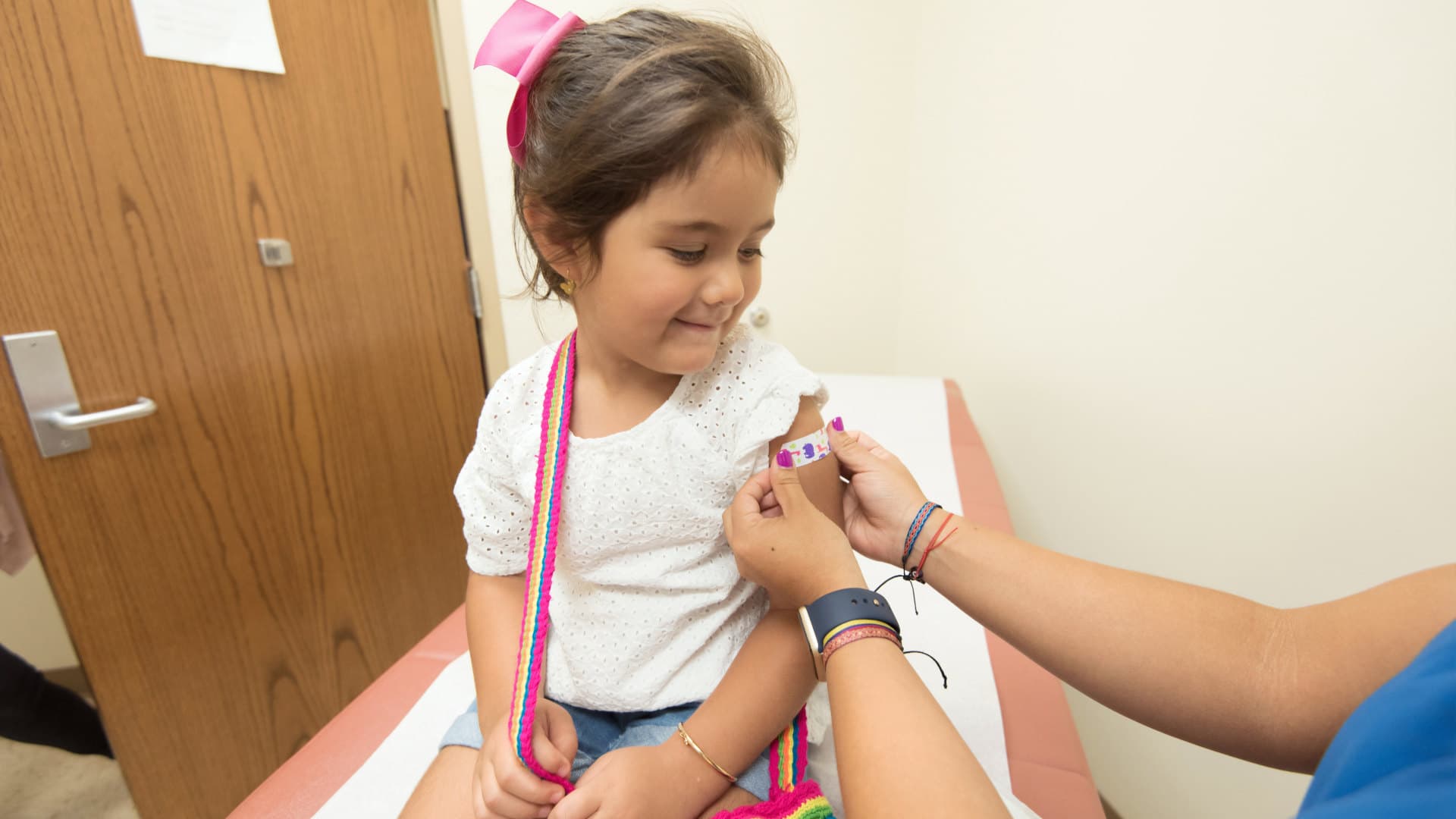
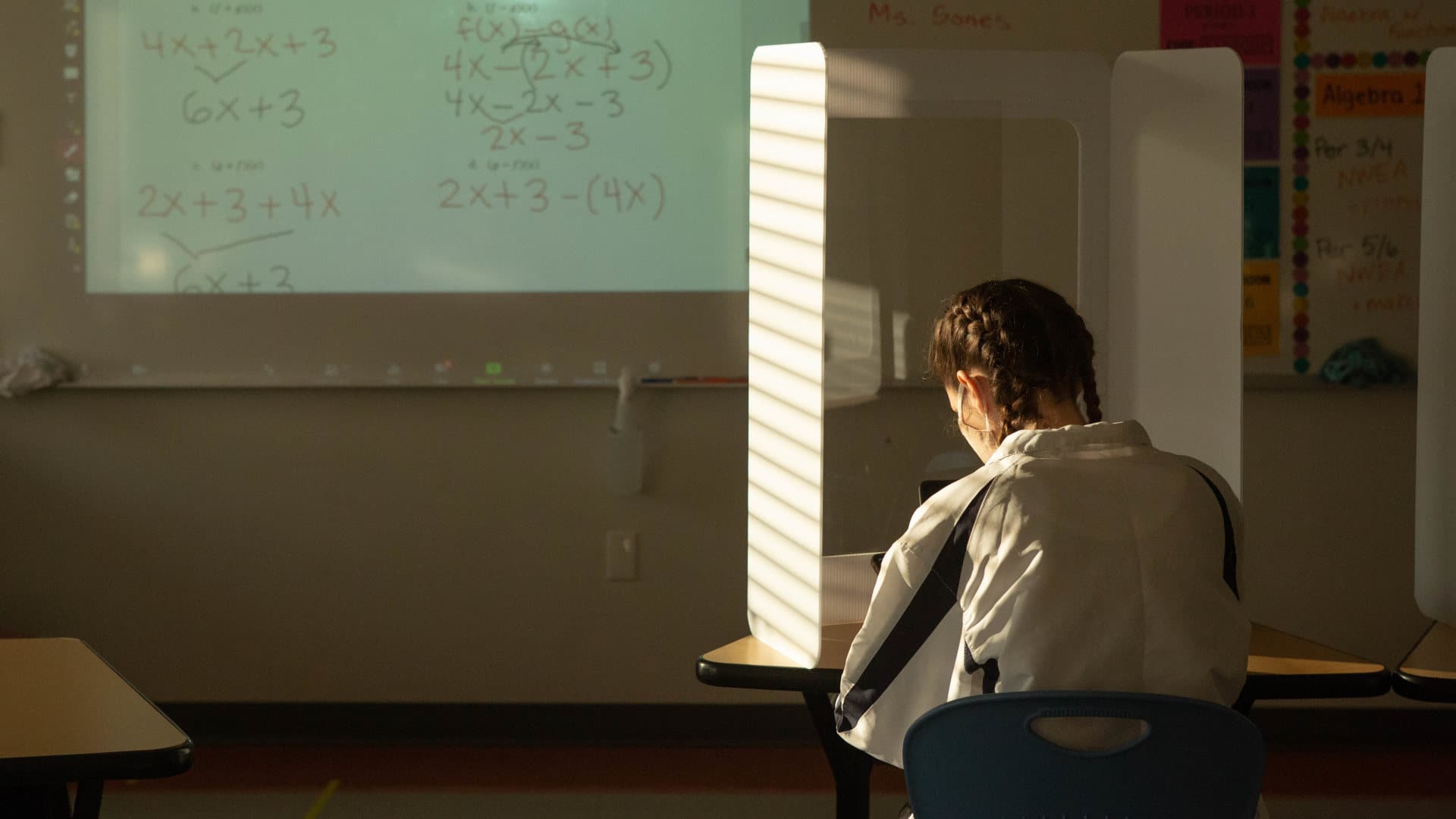
Comments are automatically closed one year after article publication. Archived comments are below.
This is Jamie Toy out of Sunland can
I have sIX childeron and I would of been very worried back in the day my children are older now and they can make their own choices but I feel for the parents today and I just wanted to let him know that I’d be worried too and I’d be taking it with caution it is too soon to tell only if the school’s demand it I have mixed feelings about all of this I’m very beginning how it all came about and everything I don’t trust our government anymore it’s corrupted as far as I can see talks about in the big bubble big country going down it’s talking about America I was surely Clinton would have made president she stood up on the fire and showed the whole world that she can stand up under stress and she had to send them to her husband had to talk about his personal business and I just know she would have did a damn good job and I feel we really lost a good lady those are my feelings sincerely Jamie toy
can I have sIX.
This is real journalism, broadly sourced among those knowledgeable in the matter at hand and devoid of unsubstantiated opinion from the writers and editors. Thank you.